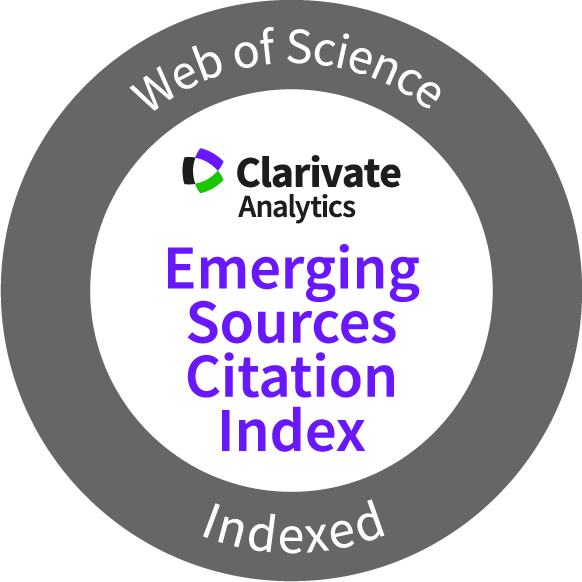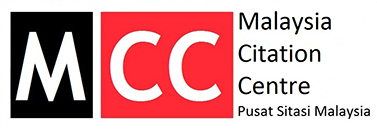Pre-COVID19: Knowledge and Level of Vaccine Acceptance Among University Students
Keywords:
Alpha Cronbach, herd immunity, questionnaire, sentiment analysis, vaccine, vaccine preventable diseasesAbstract
Vaccine confers acquired active immunity against many diseases. The emergence of anti-vaccine groups has reinstated the outbreak of many vaccine preventable diseases (VPD), which was once thought to be eradicated from the face of earth, mostly due to ever-present misinformation and disinformation spread through various channels of communications. Hence, public awareness on immunization is vital to prevent the re-emergence of VPD. In this study, we targeted students from Universiti Kebangsaan Malaysia (UKM) and aimed to obtain the level of awareness and perception regarding vaccination among these students. We acquired information on the knowledge of vaccines and the degree of acceptance of vaccines among the university students, and through educational intervention, including the Islamic view on vaccination, we aimed to increase their awareness on immunization and the adverse effects of anti-vaccination. The questionnaires used in the present study were validated by reliability analysis. The study was conducted for a duration of four months, from January to April 2019. A total of 929 respondents were interviewed, and the degree of acceptance on vaccination was at satisfactory level, and none of the students rejected vaccination. Out of 929 respondents, 36 attended the vaccine workshop to undergo the educational intervention, and were asked to refill the questionnaires, and the results of pre- and post-workshop questionnaires were compared. Vaccine workshop successfully improved the knowledge and awareness of the participants on vaccines. The number of participants who can explain herd immunity has also increased. However, there were participants who still believed that vaccine-related information retrieved from social media can be trusted without consideration. Therefore, educational intervention is suggested to be used in public as a tool to combat the expansion of the anti-vaccination community since it was shown to give positive outcomes among the students.
Downloads
Metrics
References
Abdullah, N.H. 2019. Kenyataan Akhbar KPK 23 Februari 2019 - Kejadian kes kematian difteria di Johor Bahru [WWW Document]. URL https://kpkesihatan.com/2019/02/23/kenyataan-akhbar-kpk-23-februari-2019-kejadian-kes-kematian-difteria-di-johor-bahru/ (accessed 5.12 .19) .
Awadh, A.I., Hassali, M.A., Al-lela, O.Q., Bux, S.H., Elkalmi, R.M. & Hadi, H. 2014. Immunization knowledge and practice among Malaysian parents: A questionnaire development and pilot-testing. BMC Public Health, 14(1): 1-7. DOI: https://doi.org/10.1186/1471-2458-14-1107
CDC. 2012. Vaccine: the basics [WWW Document]. URL https://www.cdc.gov/vaccines/vpd/vpd-vac-basics.html (accessed 7.6.20) .
CDC. 2020. Global measles outbreaks [WWW Document]. https://www.cdc.gov/globalhealth/measles/data/global-measles-outbreaks.html (accessed 8.23.20) . DOI: https://doi.org/10.1016/S1473-3099(19)30685-1
Choi, A., Kim, D.H., Kim, Y.K., Eun, B.W. & Jo, D.S. 2017. The impact of an educational intervention on parents' decisions to vaccinate their< 60-month-old children against influenza. Korean Journal of Pediatrics, 60(8): 254-260. DOI: https://doi.org/10.3345/kjp.2017.60.8.254
Clarke, K.E., MacNeil, A., Hadler, S., Scott, C., Tiwari, T.S. & Cherian, T. 2019. Global epidemiology of diphtheria, 2000-2017. Emerging Infectious Diseases, 25(10): 1834. DOI: https://doi.org/10.3201/eid2510.190271
Cohen, E. 2019. Anti-vaxers are winning the war on social media. What's CDC going to do about it? CNN Health April 12, 2019 [WWW Document]. URL https://edition.cnn.com/2019/04/12/health/cdc-vax-advisers/index.html (accessed 9.16.19).
Dhanasi, N., Jeet, M., Meghana, P., Shailaja, G. & Reshma, T. 2016. A growing concern: lack of knowledge regarding vaccines and immunization among college students. International Journal of Engineering Science and Computing, 6(9): 2451-2454.
Fine, P., Eames, K. & Heymann, D.L. 2011. "Herd immunity": a rough guide. Clinical Infectious Diseases, 52(7): 911-916. DOI: https://doi.org/10.1093/cid/cir007
Hamborsky, J. & Kroger, A. 2015. Epidemiology and Prevention of Vaccine-Preventable Diseases. 13th Ed. Public Health Foundation, Washington DC.
Handy, L.K., Maroudi, S., Powell, M., Nfila, B., Moser, C., Japa, I., Monyatsi, N., Tzortzi, E., Kouzeli, I., Luberti, A. & Theodoridou, M. 2017. The impact of access to immunization information on vaccine acceptance in three countries. PLoS ONE, 12(8): e0180759. DOI: https://doi.org/10.1371/journal.pone.0180759
Heymann, D.L. 2006. Control, elimination, eradication and re-emergence of infectious diseases: Getting the message right. Bulletin of the World Health Organization, 84: 82. DOI: https://doi.org/10.2471/BLT.05.029512
Jay, B.N. 2016. First adult diphtheria case in Malaysia detected (2016, July 18) [WWW Document]. URL http://www.nst.com.my/news/2016/07/158988/first-adult-diphtheria-case-malaysia-detected; 2016 (accessed 8.12.20).
KKM. 2017. Health indicator 2017. Indicators for monitoring and evaluation of strategy health for all [WWW Document]. URL https://www.moh.gov.my/moh/resources/Penerbitan/Penerbitan%20Utama/Petunjuk_Kesihatan_2017.pdf (accessed 8.12.20).
Larson, H.J., Jarrett, C., Schulz, W.S., Chaudhuri, M., Zhou, Y., Dube, E., Schuster, M., MacDonald, N.E. & Wilson, R. 2015. Measuring vaccine hesitancy: The development of a survey tool. Vaccine, 33(34): 4165-4175. DOI: https://doi.org/10.1016/j.vaccine.2015.04.037
Lim, W.Y., Amar-Singh, H.S.S., Jeganathan, N., Rahmat, H., Mustafa, N.A., Mohd Yusof, F.S., Rahman, R., Itam, S., Chan, C.H. & N-Julia, M.S. 2016. Exploring immunisation refusal by parents in the Malaysian context. Cogent Medicine, 3(1): 1142410. DOI: https://doi.org/10.1080/2331205X.2016.1142410
Liow, Y.L., Rohaidah, H., Fairuz, A., Hazwani, H., Ain, D.N. & Norazah, A. 2018. Evaluation of conventional PCR for detection of toxigenic Corynebacterium diphtheriae strains in Malaysia. Tropical Biomedicine, 35: 775-780.
Marzo, R.R., Sami, W., Alam, M.Z., Acharya, S., Jermsittiparsert, K., Songwathana, K., Pham, N.T., Respati, T., Faller, E.M., Baldonado, A.M., Aung, Y., Borkar, S.M., Essar, M.Y., Shrestha, S. & Yi, S. 2022. Hesitancy in COVID-19 vaccine uptake and its associated factors among the general adult population: A cross-sectional study in six Southeast Asian countries. Tropical Medicine and Health, 50(4): 1-10. DOI: https://doi.org/10.1186/s41182-021-00393-1
Massimi, A., Rosso, A., Marzuillo, C., Prencipe, G.P., De Soccio, P., Adamo, G., Sturabotti, G., Vacchio, M.R., De Vito, C. & Villari, P. 2017. Childhood vaccinations. Validation of a tool for measuring knowledge, attitudes and vaccine hesitancy in pregnant women. Epidemiology Biostatistics and Public Health, 14(4): e12625-1-e12625-5. DOI: https://doi.org/10.2427/12625
Ozawa, S. & Stack, M.L. 2013. Public trust and vaccine acceptance-international perspectives. Human Vaccines & Immunotherapeutics, 9(8): 1774-1778. DOI: https://doi.org/10.4161/hv.24961
Plotkin, S. 2014. History of vaccination. Proceedings of the National Academy of Sciences, 111(34): 12283-12287. DOI: https://doi.org/10.1073/pnas.1400472111
Preedy, V.R. & Watson, R.R. 2010. Handbook of disease burdens and quality of life measures. Springer, New York. 4448 pp. DOI: https://doi.org/10.1007/978-0-387-78665-0
Rao, T.S. & Andrade, C. 2011. The MMR vaccine and autism: Sensation, refutation, retraction, and fraud. Indian Journal of Psychiatry, 53(2): 95. DOI: https://doi.org/10.4103/0019-5545.82529
Rimmer, A. 2019. Social media: suicide promotion and anti-vaccine content must be banned, says BMA [WWW Document]. URL https://www.bmj.com/content/365/bmj.l4425 (accessed 27.12.23) DOI: https://doi.org/10.1136/bmj.l4425
Sheikh, S., Biundo, E., Courcier, S., Damm, O., Launay, O., Maes, E., Marcos, C., Matthews, S., Meijer, C., Poscia, A. & Postma, M. 2018. A report on the status of vaccination in Europe. Vaccine, 36(33): 4979-4992. DOI: https://doi.org/10.1016/j.vaccine.2018.06.044
Tavakol, M. & Dennick, R. 2011. Making sense of Cronbach's alpha. International Journal of Medical Education, 2: 53. DOI: https://doi.org/10.5116/ijme.4dfb.8dfd
Tran, B.X., Boggiano, V.L., Nguyen, L.H., Latkin, C.A., Nguyen, H.L.T., Tran, T.T., Le, H.T., Vu, T.T.M., Ho, C.S. & Ho, R.C. 2018. Media representation of vaccine side effects and its impact on utilization of vaccination services in Vietnam. Patient Preference and Adherence, 2018(12): 1717-1728. DOI: https://doi.org/10.2147/PPA.S171362
Turner K. 2011. An introduction to infectious disease modelling. Sexually Transmitted Infection, 87(1): 21. DOI: https://doi.org/10.1136/sti.2010.046342
Wan Rohani, W.T., Tengku Muhammad Ariff, R.H., Aryati, A. & Noor Aini, M.Y. 2017. Issues in vaccine hesitancy in Malaysia: a countering approach. Journal of Biomedical & Clinical Sciences, 2(1): 42-46.
WHO. 2019. Measles [WWW Document]. URL https://www.who.int/news-room/fact-sheets/detail/measles (accessed 8.12.20).
WHO. 2020. WHO vaccine-preventable diseases: monitoring system. 2020 global summary [WWW Document]. URL https://apps.who.int/immunization_monitoring/globalsummary/incidences?c=MYS (accessed 8.2.20).
Zipprich, J., Winter, K., Hacker, J., Xia, D., Watt, J. & Harriman, K. 2015. Measles outbreak-California, December 2014-February 2015. Morbidity and Mortality Weekly Report, 64(6): 153.
Published
How to Cite
Issue
Section
Any reproduction of figures, tables and illustrations must obtain written permission from the Chief Editor (wicki@ukm.edu.my). No part of the journal may be reproduced without the editor’s permission
Funding data
-
Universiti Kebangsaan Malaysia
Grant numbers RCRP-2016-001




















